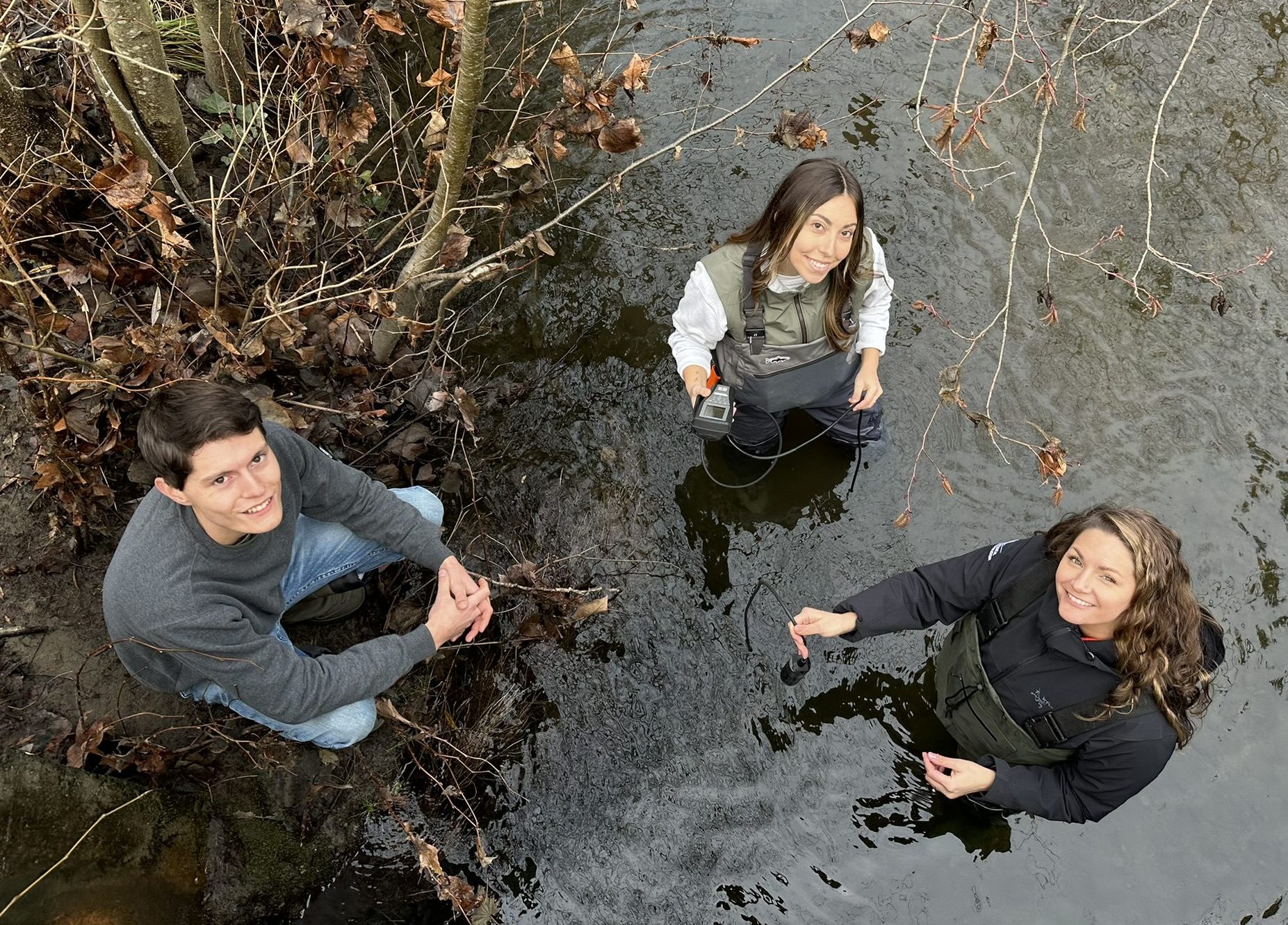A five-year, $550,000 Natural Sciences and Engineering Research Council of Canada (NSERC) Alliance grant has been awarded for the Road Salt and Salmon Project. BCIT’s students and faculty have been conducting research in this multi-institute effort to understand how the use of salt for de-icing roads is affecting the salmon population in Metro Vancouver.
A cross-collaboration effort
The Road Salt and Salmon Project is a five-year collaborative project focused on studying the potential impacts of road salt use on urban salmon bearing streams within the lower mainland and surrounding areas. This project is a collaborative, multi-year project between BCIT, Simon Fraser University (SFU), University of British Columbia (UBC), Fisheries and Oceans Canada (DFO), local stream keeper organizations, the City of Burnaby, and other municipal partners.
With the hard work and dedication of over 7,000 hours of volunteer time, the project is dedicated to better protecting the health of our local waterways by promoting scientifically informed regulation of road salt application in our urban environments.
Elevated salt concentrations in local salmon-bearing streams
BCIT became involved in the Road Salt and Salmon Project through the Stoney Creek Environment Committee (SCEC) and Oceans and Fisheries Canada (DFO). This connection led to the first real-time data logger being installed in Guichon Creek by Ecological Restoration faculty member, Lisa Henault. These data launched multiple research projects by her BCIT/SFU Ecological Restoration MSc students, including Marissa Glavas and Nicholas Sterling, who analyzed the conductivity in streams to determine road salt impact on our salmon-bearing waterways.
Today, the Road Salt and Salmon Project is monitoring over 30 streams. The funding provided by the NSERC Alliance grant is supporting research across multiple institutes in the areas of hydrology, ecotoxicology, and environmental physiology. Currently at BCIT, research is being led by faculty members Ana Chará-Serna and Anayansi Cohen Fernandez, who are supervising MSc student Jonathan Gosling’s research on the impact of elevated salt concentration levels on the main food source for salmon.
This research is also supporting the active restoration of Guichon Creek on the Burnaby Campus to allow salmon to navigate further upstream into the watershed.
A career for a better future
BCIT offers one of the very few bachelor’s degrees in Ecological Restoration in Canada. The immersive program offers graduates the foundation and hands-on skills to be “ecosystem physicians”. Through classroom-based delivery and hands-on field applications, learn to apply knowledge of ecology, hydrology, geochemistry, geomorphology, and engineering to address ecological health issues.
The Master of Science in Ecological Restoration is currently under redesign. If you would like to be contacted when this process is complete, please contact Giti Abouhamzeh at giti_abouhamzeh@bcit.ca.
